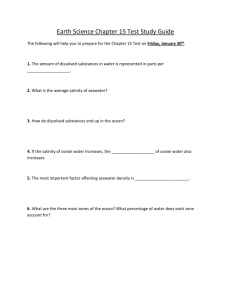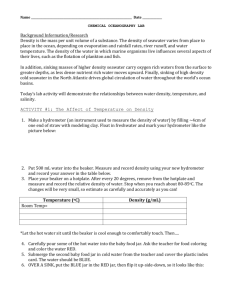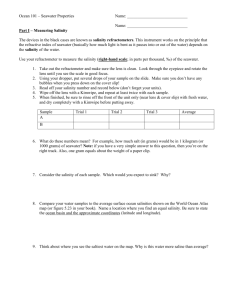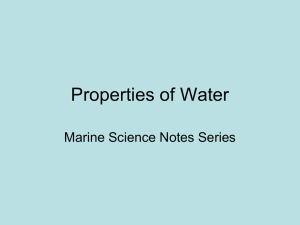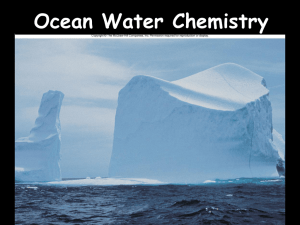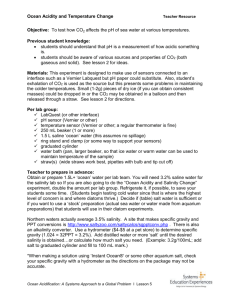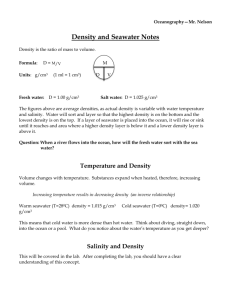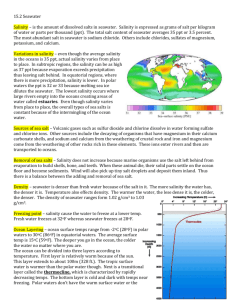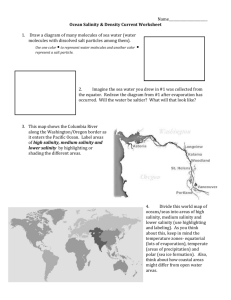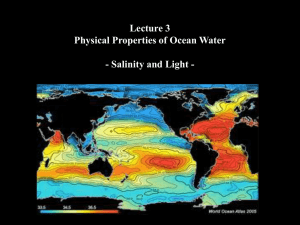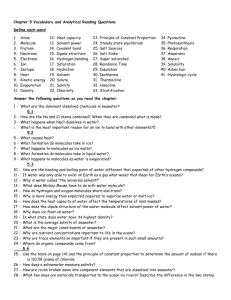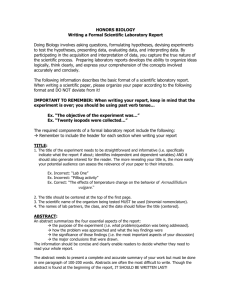Ocean Layers LAB instructions
advertisement
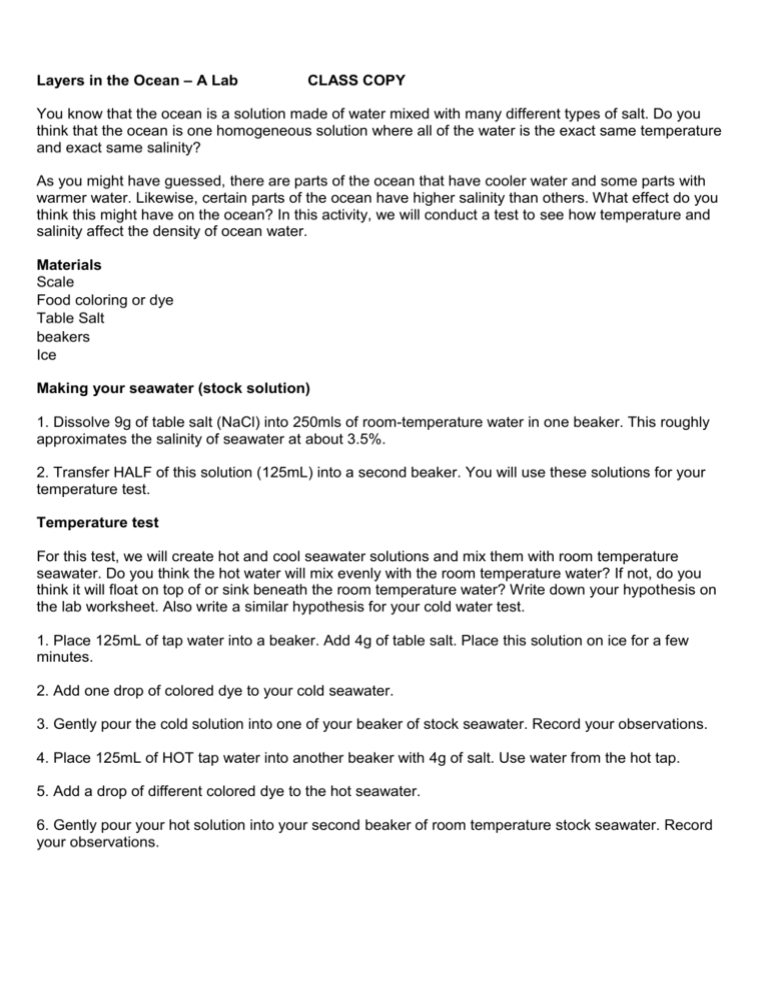
Layers in the Ocean – A Lab CLASS COPY You know that the ocean is a solution made of water mixed with many different types of salt. Do you think that the ocean is one homogeneous solution where all of the water is the exact same temperature and exact same salinity? As you might have guessed, there are parts of the ocean that have cooler water and some parts with warmer water. Likewise, certain parts of the ocean have higher salinity than others. What effect do you think this might have on the ocean? In this activity, we will conduct a test to see how temperature and salinity affect the density of ocean water. Materials Scale Food coloring or dye Table Salt beakers Ice Making your seawater (stock solution) 1. Dissolve 9g of table salt (NaCl) into 250mls of room-temperature water in one beaker. This roughly approximates the salinity of seawater at about 3.5%. 2. Transfer HALF of this solution (125mL) into a second beaker. You will use these solutions for your temperature test. Temperature test For this test, we will create hot and cool seawater solutions and mix them with room temperature seawater. Do you think the hot water will mix evenly with the room temperature water? If not, do you think it will float on top of or sink beneath the room temperature water? Write down your hypothesis on the lab worksheet. Also write a similar hypothesis for your cold water test. 1. Place 125mL of tap water into a beaker. Add 4g of table salt. Place this solution on ice for a few minutes. 2. Add one drop of colored dye to your cold seawater. 3. Gently pour the cold solution into one of your beaker of stock seawater. Record your observations. 4. Place 125mL of HOT tap water into another beaker with 4g of salt. Use water from the hot tap. 5. Add a drop of different colored dye to the hot seawater. 6. Gently pour your hot solution into your second beaker of room temperature stock seawater. Record your observations. Salinity test For this test, we will make a solution that has high salinity (much more salty) compared to our stock salinity. Which layer do you think will be on top – the high or low salinity water? Record your hypothesis on the lab worksheet. 1. Rinse out beakers from the previous test. 2. Make a new stock solution in one plastic container by mixing 4g of salt into 125mL of room temperature water. 3. In one of your beakers, mix 125mL of room temperature water with 15g of salt. This solution is nearly four times as salty as the regular stock seawater. 4. Add a colored dye to the salty solution. 5. Gently pour your salty solution into your plastic container of stock seawater. Record your observations. Salinity vs. temperature What do you think has the greater effect on density: temperature or salinity? How would you test your hypothesis? Write out the steps for your experiment. If there is time, your teacher may let you run your test! If you did the experiment write down your Hypothesis and whether or not it was supported. Give mention to the evidence on which you base your conclusion.
